Built in 1941 and served until 1963 as the only movie theater available to the African-American community in Wichita.
The Dunbar Theater holds a special place in the memories of many as a cornerstone of what was once the thriving commercial hub of Wichita’s African-American community during the 1940s and 1950s. Many enthusiastically recall the popularity of the bustling neighborhood — with its drug store, ice cream shop, hair salons, cafes — and the Dunbar Theater for movies.
For decades, now, though, the theater has been vacant, deteriorating slowly, along with the surrounding neighborhood. However, a recent revival of interest in inner-city property for new development has brought new hope and new life to old neighborhoods, including the McAdams Neighborhood.
The City of Wichita decided to commission a Feasibility Study to determine the viability of redeveloping the theater as a visual and performing arts center. The study found that redevelopment of the Dunbar Theater will fill an unmet niche in the community for a performing arts venue with approximately 200 seats — while also providing the surrounding neighborhoods with a much-needed facility to host meetings, receptions, youth activities and civic events.
The study estimates that the Dunbar Theater can be reopened for about $1.5 million — a fraction of the cost of a new theater, bringing the Theater to life for its first public uses. Additional improvements will be done in two additional phases, costing approximately $1.5 million each, to achieve the full capability of the Theater.
As part of a community-based initiative, POWER CDC is taking the lead role with the acquisition and re-development of the Dunbar Theater, and today owns this historic prize. Accordingly, POWER CDC is now accepting financial contributions to redevelop and operate the theater.
~ an excerpt from the “Humanities Statement” written by Gretchen Eick, PH.D., Professor of History Emerita at Friends University, Wichita, Kansas
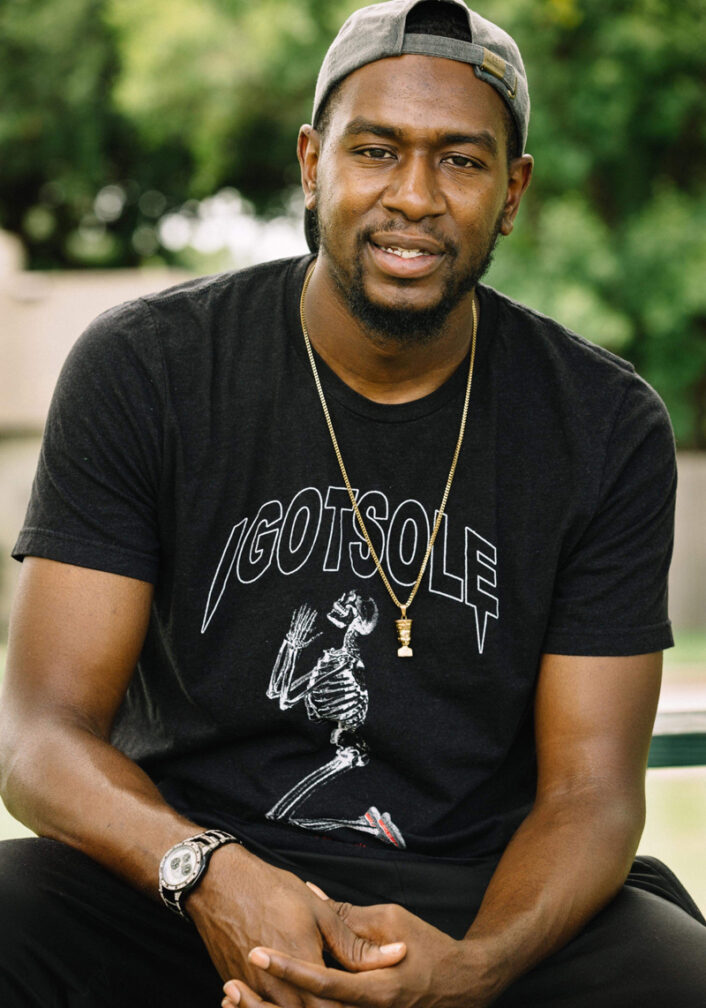
Samuel Thompson, 2018, photographed by Juan Garcia
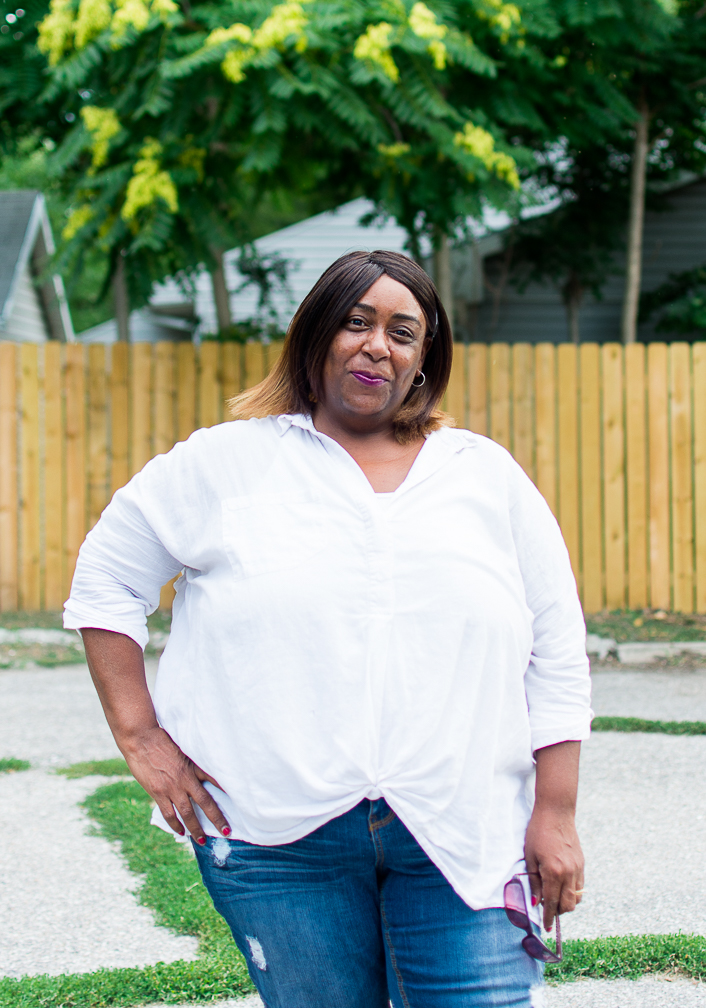
Karmeleta Burnett, 2018, photographed by Ashwin Govindarajan
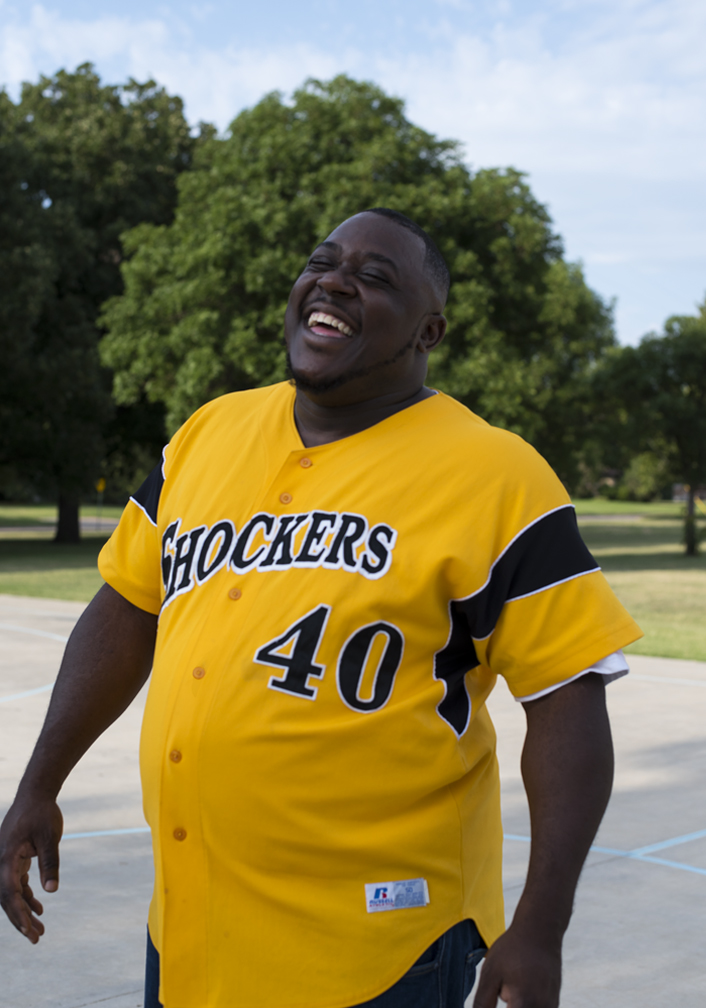
Sean Gates, 2018, photographed by Alexis Rivierre
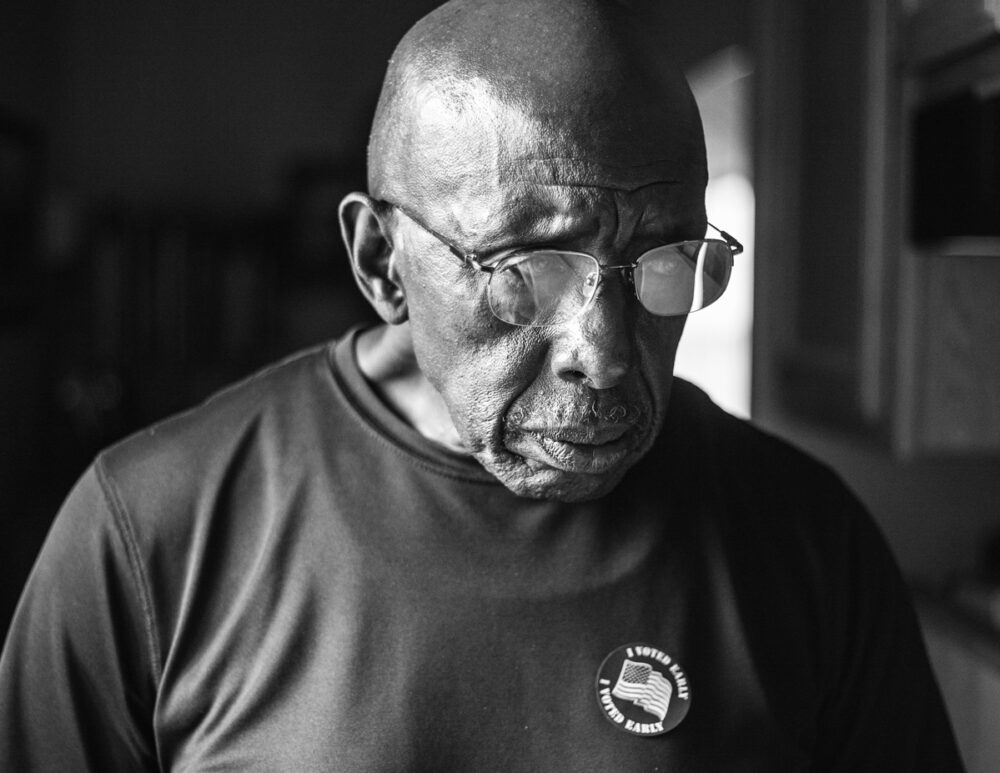
Marvin Stone, 2018, photographed by Xavier Leija
“My favorite memories as a child is just getting together for holidays with the family and playing Loteria (Mexican Bingo). We lived right in front of Horace Mann… I remember just playing with my cousins in the playground, having summer school there, [and] various activities.” “I saw my parents, how they worked so hard and I knew I didn’t want that path of working long hours. And they always told me, ‘No trabajes como un burro,’ meaning, ‘Don’t work like a donkey. Get an education.’ So that was always in the back of my head that I had to get an education.” “Evergreen Park was always a nice place to go to with family and friends and just hanging out. I went to Cloud Elementary after second-grade year, and just… That was my safe zone. School, education was my safe zone. Another great memory I remember growing up is, I never went to school hungry because there was this church where they provided breakfast for us. That was just really nice because the smell of french toast, eggs and just being able to have breakfast before going to school was something I looked forward to because it was home-made and all these old ladies cared about you.”
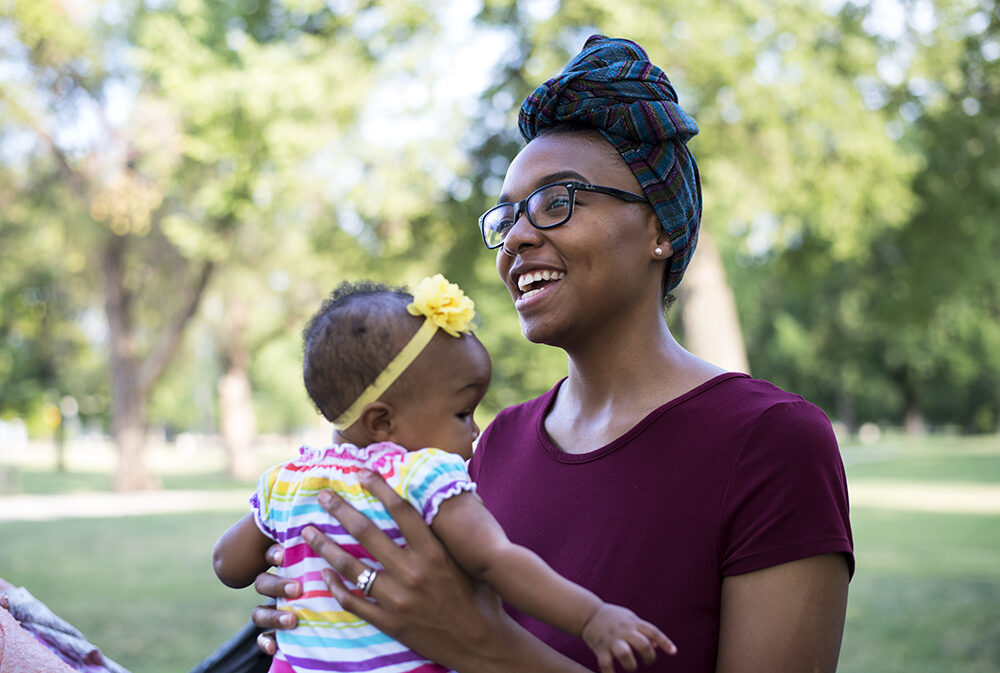
Antonesha Walker, 2018, photographed by Alexis Rivierre
Copyright 2017 - 2023 © Horizontes.
All rights reserved.
